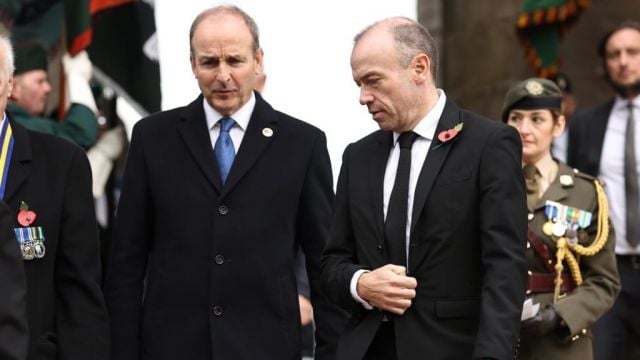The Government is giving “very serious consideration” to taking any action over the UK government’s controversial legislation aimed at dealing with Northern Ireland’s troubled past.
Legacy was among the topics discussed by representatives of the two governments at the British-Irish Intergovernmental Conference in Dublin on Tuesday.
Earlier this year, the Northern Ireland Troubles (Legacy and Reconciliation) Act became law despite widespread opposition from political parties, victims’ organisations and the Irish government.
It includes a limited form of immunity from prosecution for Troubles-related offences for those who co-operate with the new Independent Commission for Reconciliation and Information Recovery (ICRIR). It will also halt future civil cases and legacy inquests.
Legal challenges have been taken to it at Belfast High Court.
During discussions between the governments on Tuesday, the Irish Government reiterated its serious concerns in relation to the Act’s compatibility with the European Convention on Human Rights.
The UK government set out the next steps in the implementation of the legislation by the Independent Commission for Reconciliation and Information Recovery.
It also raised its serious concerns that an interstate case brought by Ireland would undermine the commission’s opportunity to deliver better outcomes for victims before it is even fully established.
The governments also discussed a number of individual cases, including the 1998 Omagh bomb, the murder of solicitor Pat Finucane and the Dublin/Monaghan bombing.
Speaking to media after the event, Irish Minister for Foreign Affairs Micheál Martin said the approach to legacy is an issue where there are “significant differences” between his government and the UK government.
He said it was a “matter of serious and sincere regret that we’ve reached this point”.
He said the Government will give the act “very serious consideration” and has received advice from the Attorney General.
Mr Martin described himself as “victims-led” on legacy, and said he has met with a lot of victims groups.
“Victims of state violence, victims of the Provisional IRA, victims of loyalist violence and (I am) very struck by their continued absence of closure,” he said.
“They’ve all been very much opposed to the legislation that has come through.
“We’re also conscious of impacts on British-Irish relationship. We’ve worked hard to strengthen that, and I think this is the third meeting of the British Irish Intergovernmental Conference in one year. That’s the first time this has happened in 17 years.
“This is evidence that both governments are doing everything possible to enhance the East West dimension of the agreements, we’re conscious of that.
“So we will weigh all of that up. As a government, we’ll come together to specifically discuss this issue, the Irish government will, and then we make a decision.”
Mr Heaton-Harris said in the same press conference: “We did discuss legacy, and we believe that our Legacy Act is (European Court of Human Rights) complaint and the commission will provide information and answers to the families who require it.”







